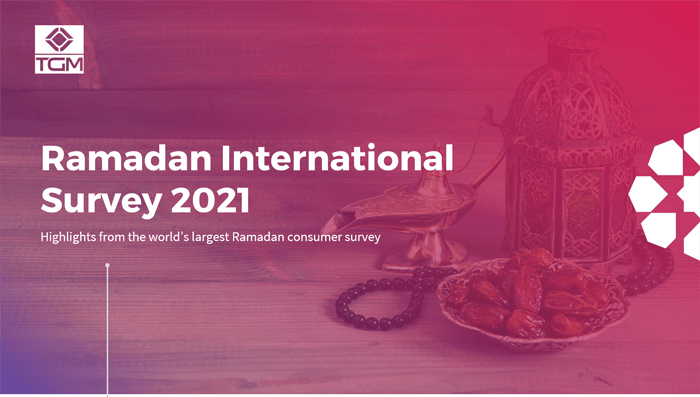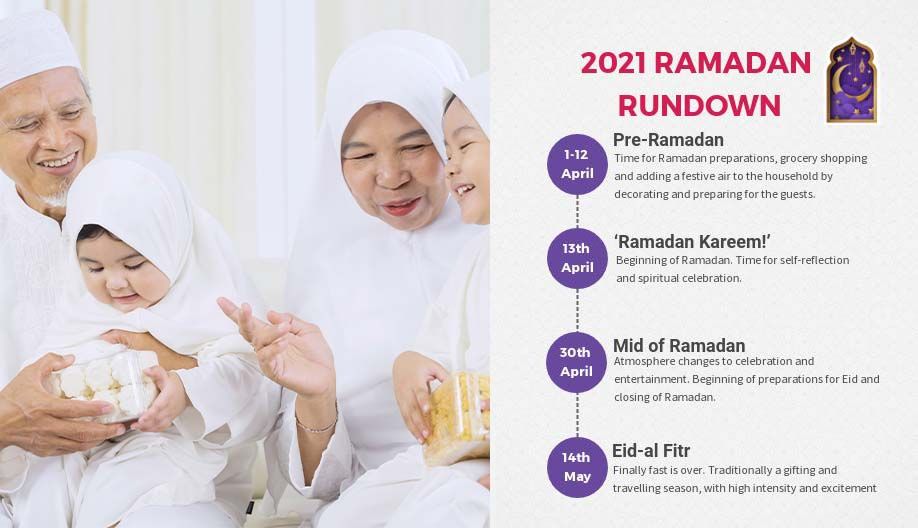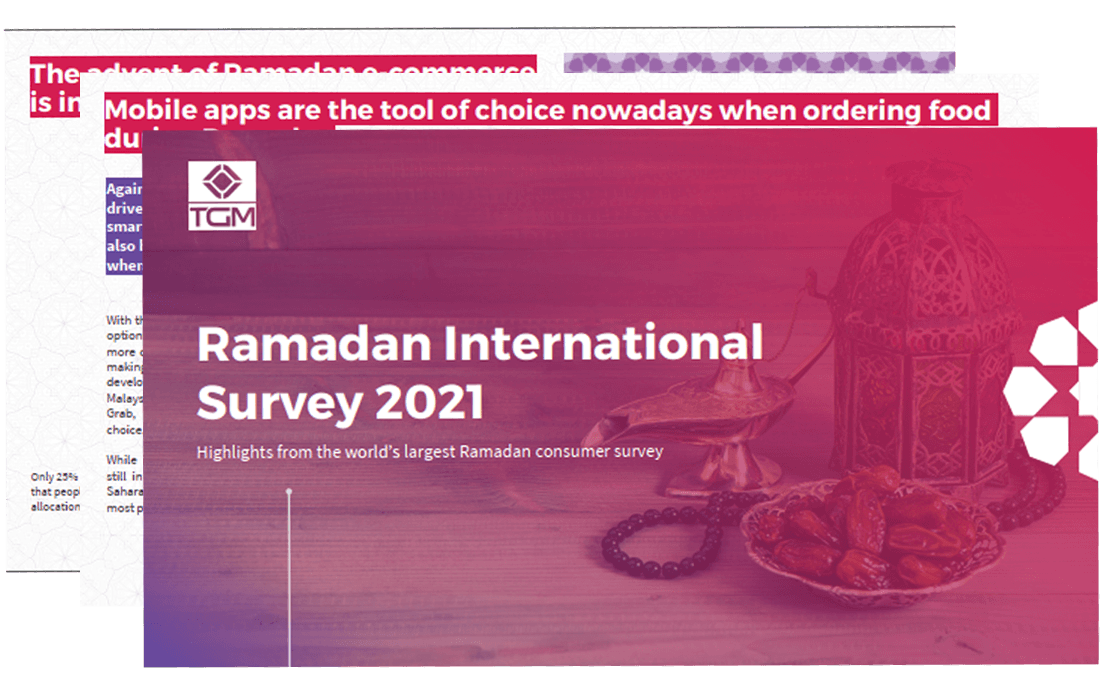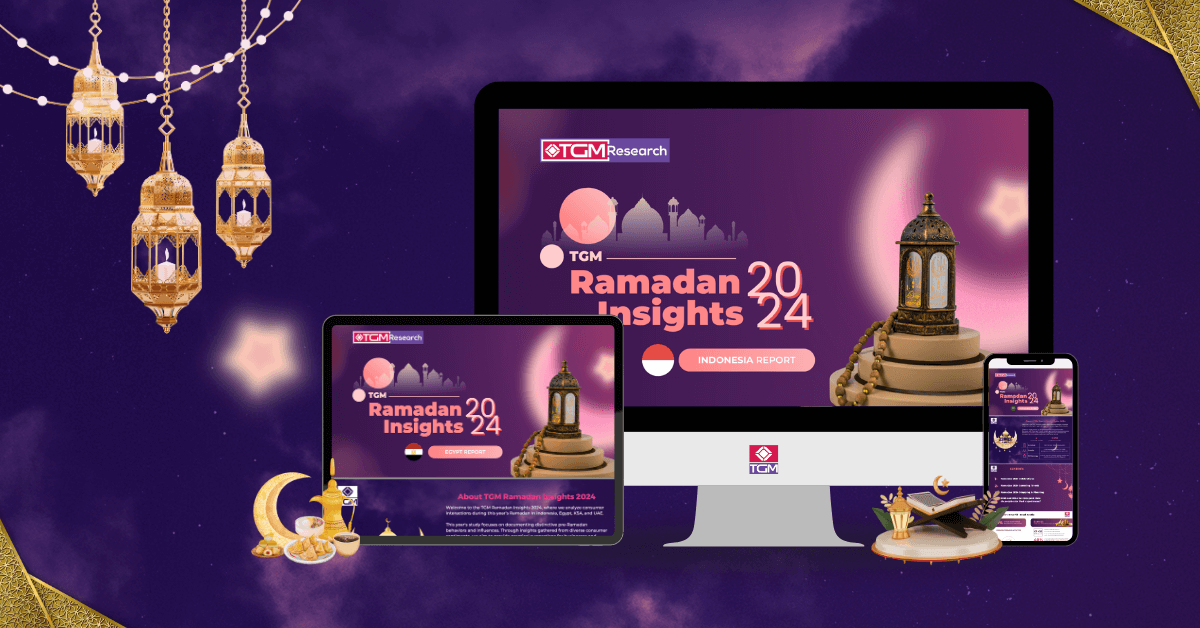Ramadan 2021 – How will it be this year?
The government, and the Muslim population itself, had to make a lot of changes last year to prevent the virus from spreading. Ramadan’s natural flow at home, the market, or in the mosques, was disrupted and most people had to experience the month like never before. Mosques were closed, and Muslims were encouraged to pray Tarawih at home. The usually crowded markets were less frequented and even closed at times. Family visitations were either very limited or stopped entirely.
One year later, Ramadan 2021, although there still exist restrictions, the situation is different to some extent. In Algeria, for instance, Mosques that can fit 1000 people will be open to both men and women for the Tarawih prayer, except for children. Family gatherings will be allowed across the Muslim world but with certain limitations in numbers depending on each country. This change is welcome as it falls with what the participants in our survey expressed they wished to do during this month. 63% of them said that they would increase worship, while 54% are looking forward to family and friends gatherings.
Ramadan must come to an end, and with that comes Eid al-Fitr. Just like Ramadan, Eid al-Fitr will still be affected by covid restrictions, and governments will determine to what extent they apply them as Ramadan approaches its end. The restrictions may cover the ability to travel across provinces, the number of people in family gatherings and the Eid prayer.
Ramadan and Consumers
Whether it be necessary groceries to prepare the iftar and suhoor meals, gifts or new clothes for Eid under normal circumstances, commerce would flourish during Ramadan. Purchases made at the start of the month will mainly consist of products meant for the preparation of the daily iftar meal. 40% of participants will spend more on food and beverages. As Eid approaches, the shift will be on clothes, sweets, gifts and getting a fresh look from the hairdresser. Although it looks bright for all of these businesses, other industries, such as transportation, may not do as well thanks to covid restrictions. Only 50% of those who participated in our survey will travel to their hometown to spend Ramadan with their family and friends, thanks to covid travel restrictions.
Although shopping from physical stores was significantly reduced because of the virus, online shopping and delivery services boomed. 42% of our participants bought something online in the last week. Most Muslims would have homemade iftar meals, yet there is a growing trend for ordering food online, and southeast Asians are leading it. Convenience is the driving force for the increased demand for ordered food, whether it is through phone calls or mobile apps.
There is, however, a disparity when it comes to the method of ordering meals; some countries are predominantly using traditional means of ordering the food, such as Algeria, while more developed countries like Indonesia have a better foundation for food ordering apps. Nonetheless, the pandemic has accelerated the development of mobile food applications in countries that are lagging behind.
Ramadan provides a golden opportunity for companies to make a profit, as long they take cultural and religious sensitivities seriously. More than 2/3 of Muslims expressed that it is important to them that brands respect their faith. Brands should invest in knowing who their target audience is and advertise whatever product or service they wish to sell in a manner that is not deemed offensive or violate the Islamic moral code. It would be, for instance, very offensive to advertise your product using actors dressed in a way that is deemed Islamically inappropriate.
As for the spending ability, even though most Muslims will not take loans, 18% may consider taking it to cover their spending expenses. In North Africa, 12% of Moroccans, 11% Tunisians and 9% of Algerians consider taking loans to support their household budget with additional finance. There might be an increase in the willingness to take loans because of the current economic and employment crisis caused by the pandemic.
Media Usage During the Holy Month
The media plays a role during Ramadan in keeping people informed, entertained and connected. Last year, with the pandemic keeping everyone locked at home, and away from family, media consumption increased significantly. Smartphone usage, specifically, rose, making it the primary tool for shopping, entertainment and both online and offline communication. From calling loved ones to using Muslim-oriented apps that help with staying true to the Ramadan spirit, and religious obligations. With Ramadan still impacted by COVID-19’s restrictions this year, our study shows that people will still use their phones this Ramadan as well. 30% of Muslims will increase their use of the smartphone in 2021.
Muslim-oriented apps, websites or social media groups help Muslims throughout the year with their religious obligations and spirituality. These online platforms help the user to pray the obligatory daily prayers in time, grant access to the Qur’an and other Islamic books or provide reminders and motivation. While these platforms are available all year long, Muslims will frequent them more during Ramadan. To stay on top of their daily Ramadan practices, 62% of Muslims will use Muslim-oriented platforms during Ramadan than any other time of the year.
A brighter look at the future
While the effects of the virus were devastating in many ways, they led to more innovation and development in commerce. Such innovations will benefit businesses and brands greatly during the upcoming Ramadan, a month when consumption of different products and services boom.
We asked our survey participants if they think that 2021 will be better than last year, and 62% of them are optimistic.



